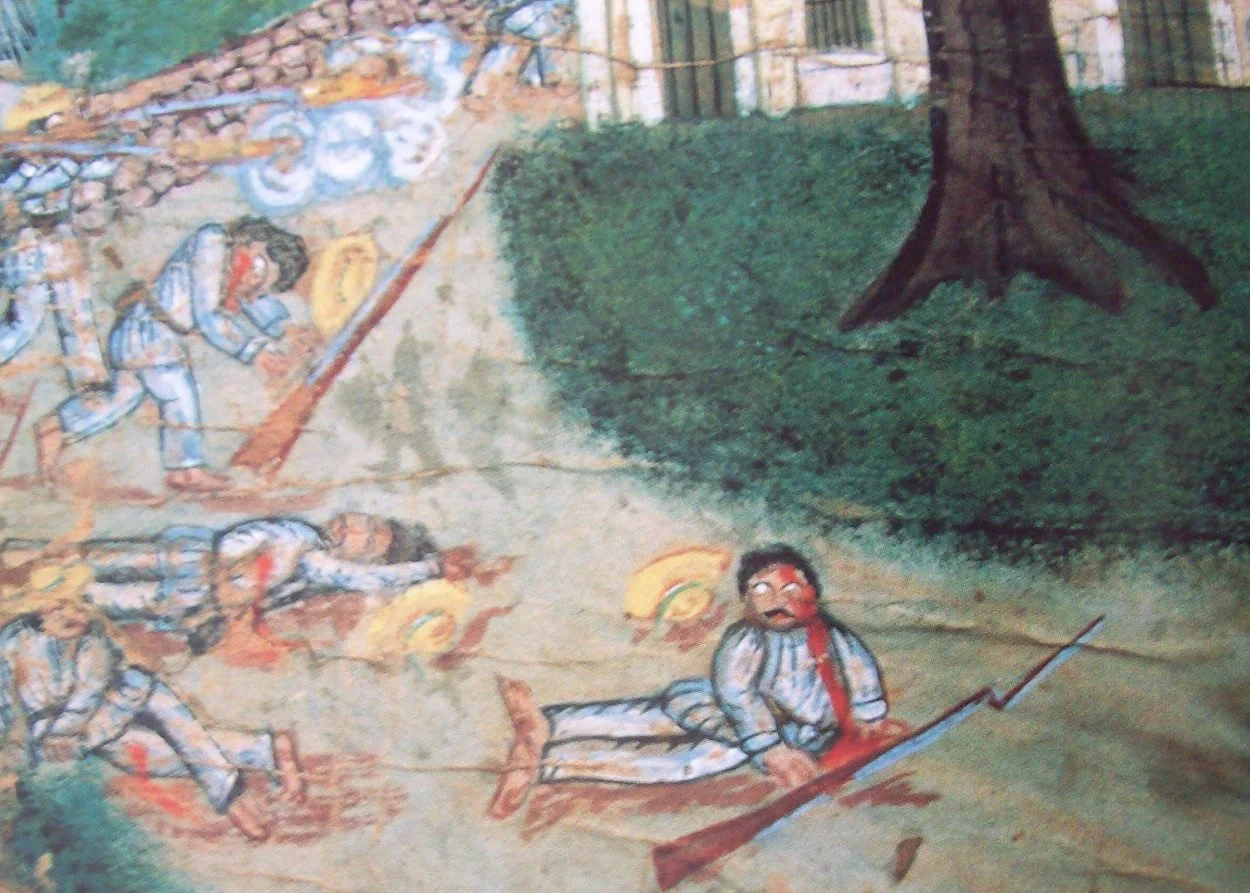The Caste War of Yucatán was a conflict that took place in the Yucatán Peninsula in Mexico during the second half of the 19th century.
It was a rebellion of the Maya people against the Hispanic Mexicans called Yucatecos, and the mestizo elites and white populations that migrated to rural towns.
The roots of the Caste War can be traced back to the Spanish conquest of Mexico in the 16th century. The Spanish colonizers brutally subjugated the indigenous peoples of Mexico and established a system of forced labour and exploitation.
This system persisted in the Yucatán Peninsula for centuries, with the Spanish and mestizo elites controlling the region’s agriculture, logging, and henequen production that encroached on indigenous customary lands in the south and east of the peninsula.
By the 1840s, land alienation had increased precipitously, forcing much of the Maya peasantry to work as indebted laborers on large estates (haciendas).
The rebellion began in 1847, with uprisings quickly spreading throughout the Yucatán Peninsula led by figures such as Cecilio Chi and Jacinto Pat. The Maya formed communities fighting for their autonomy and independence, often resorting to guerrilla warfare tactics.
In the 1850s, the United Kingdom recognized the Maya state because of the value of its trading with British Honduras (present-day Belize) and provided arms to the rebels at the beginning of the insurgency.
The Mexican government used brutal tactics to suppress the rebellion, such as mass executions, forced resettlement, and the use of troops and militias.
The war unofficially ended in 1901, when the Mexican army, with the help of a new generation of mestizo leaders, defeated the last major Maya rebel stronghold and occupied Chan Santa Cruz and subdued neighbouring areas. Skirmishes with small settlements that rejected Mexican control continued until 1933.
The Caste War marked the beginning of the end of the hacienda system in Yucatán, as the Maya gained greater control over their lands and resources. The rebellion also brought about significant changes in the political and social structure of the region, with the Maya gaining greater representation and recognition in the years that followed.
The Caste War of Yucatán was a pivotal moment in Mexican history, and it remains an important event for the Maya people and their descendants. The war represented a struggle for justice and autonomy, as the Maya fought against centuries of oppression and exploitation.





